Altoros Heartbeat Adds Full-Stack Monitoring for Pivotal Cloud Foundry
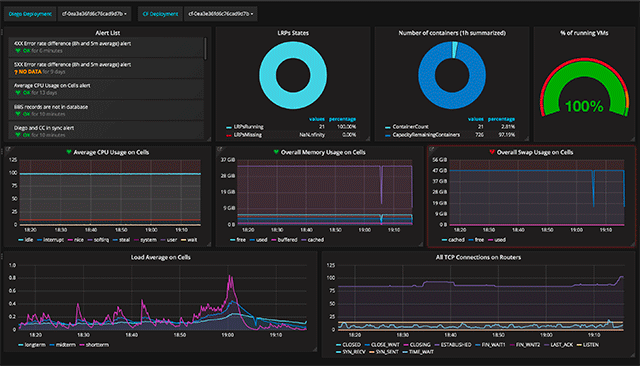
Today, we’re proudly announcing availability of the Heartbeat monitoring tool for Pivotal Cloud Foundry (PCF). Currently in beta, the product is delivered to help existing PCF operators and developers.
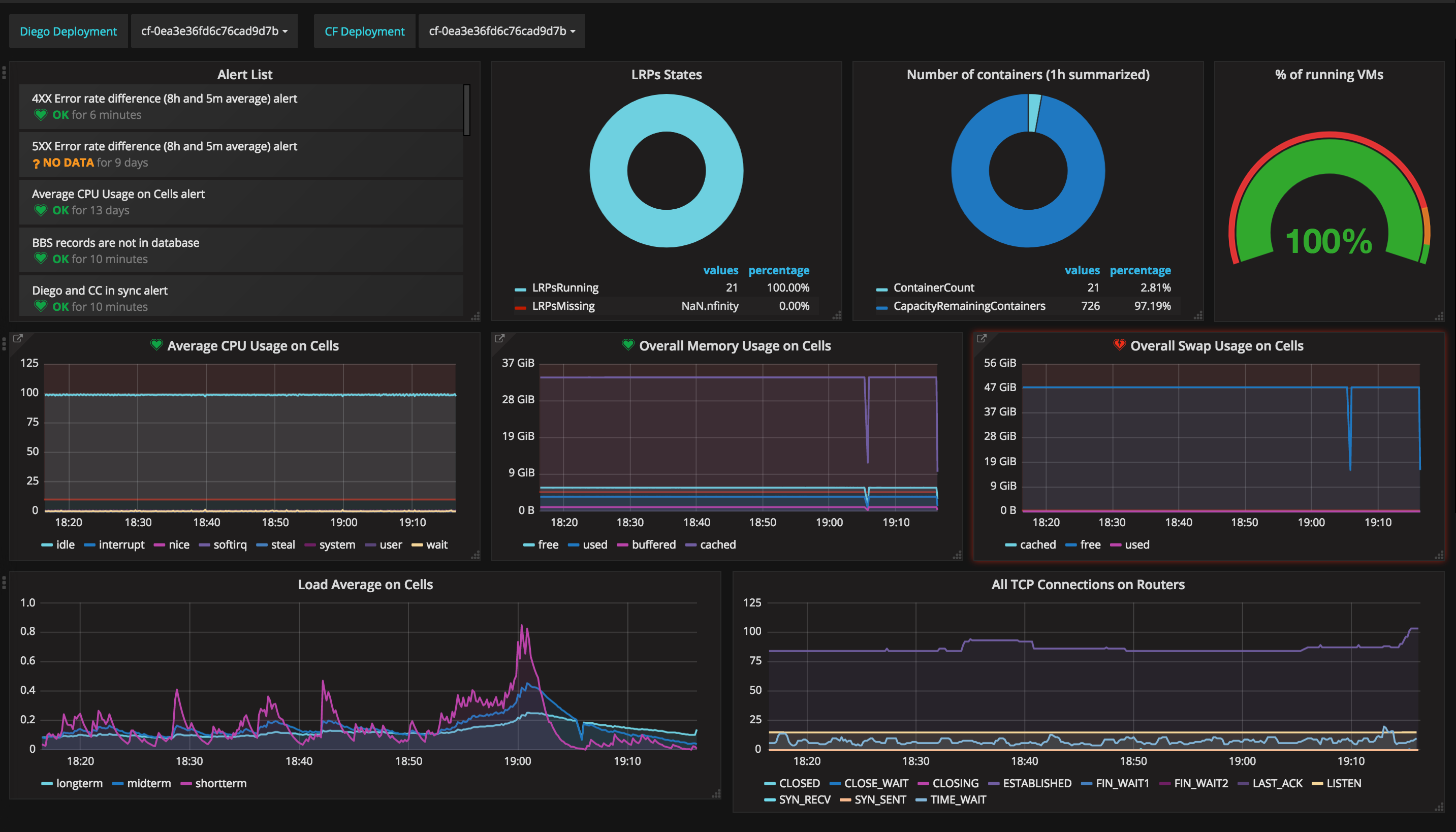 Overview of a PCF Elastic Runtime deployment
Overview of a PCF Elastic Runtime deployment
Unified monitoring throughout the stack
Altoros Heartbeat was originally released in May 2017 as a full-stack monitoring tool for Cloud Foundry. It provides real-time measurement of Cloud Foundry deployments—from IaaS and components to apps and services—combining data visualization, alerts, etc.
Heartbeat for PCF, in its turn, enables operators to monitor:
- The platform—metrics emitted by all PCF components
- IaaS—metrics from CPU, memory usage, IO, network, VM states, and more, regardless of the underlying infrastructure
- Third-party services—metrics from MySQL, PostgreSQL, Redis, and RabbitMQ
- Applications—standard (CPU, memory, or disk usage), arbitrary (gauges, counters, timings, sets), and HTTP-specific (requests per second, status codes, error rates, and more) metrics
Users of Heartbeat for PCF build upon predefined, easily configurable data visualization panels, by creating their own dashboards for general overviews or close-ups to get all key metrics in one place. Alerts can be defined for each dashboard panel, and users get immediate notifications through e-mail, Slack, and other notification channels.
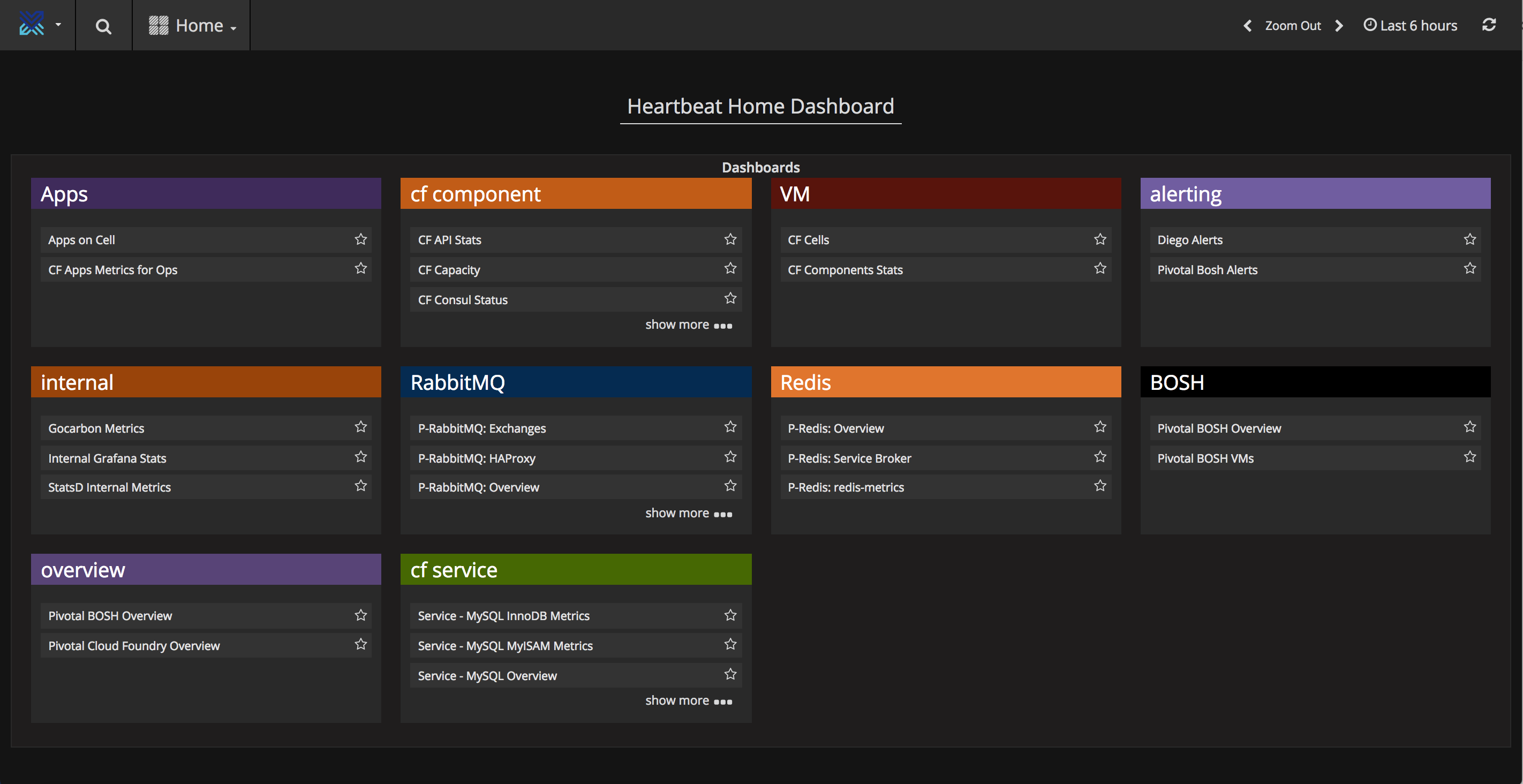 Customizable Heartbeat dashboards
Customizable Heartbeat dashboards
Focused on unique PCF demands
The new release provides functionality through a PCF tile—packaged to expose the product functionality as a managed service.
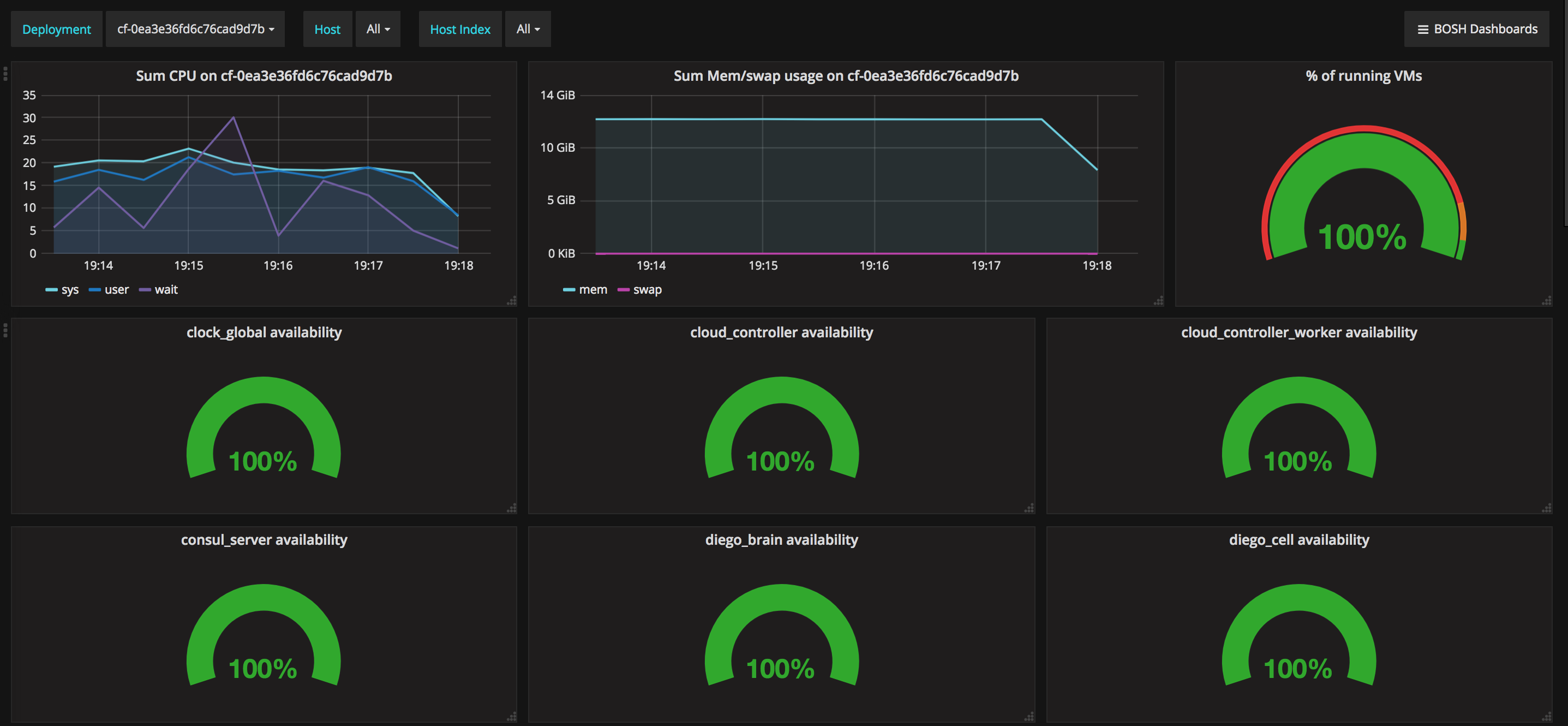 Status of a BOSH deployment
Status of a BOSH deploymentWhile service integration with PCF requires a deep understanding of the platform and the service that is being integrated, simply creating a tile with all the required components is not enough. Each service must stand up to Pivotal’s quality standards and comply with a list of requirements:
- Address the required level of high availability, scalability, and security
- Maintain usability over time as new versions of software are being released
- Monitor system performance to detect issues in production as early as possible
- Supply end users with up-to-date and clear documentation
That’s just some of the goals Heartbeat developers were focused on.
The product in detail
Heartbeat for PCF uses Cloud Foundry’s UAA service to control access to apps and resources—multi-tenancy is implemented according to Cloud Foundry UAA roles. Metrics are collected from all orgs/spaces.
Heartbeat for PCF is free while it remains in beta, then will be offered under a subscription model. An overview of Altoros Heartbeat monitoring can be found here.
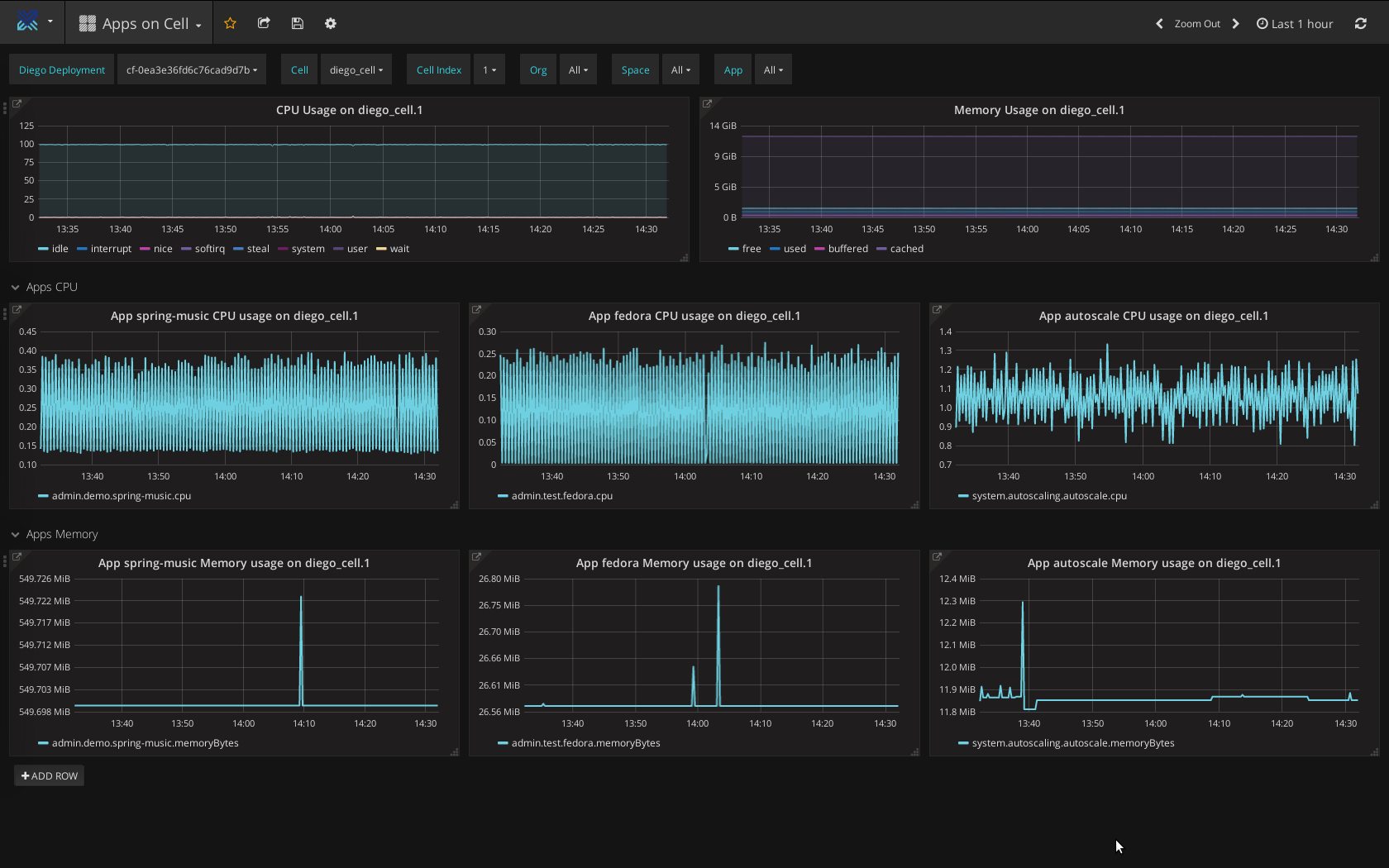 Overview of apps on a Diego Cell
Overview of apps on a Diego CellThe development team is working on improving performance of the tool and optimizing alerting rules. It is also planned to integrate more of third-party services, as well as include other PCF tiles offered by Altoros (for Cassandra, Jenkins, Elasticsearch, etc.).
To download Heartbeat for PCF, follow the link. For release notes and installation tutorials, visit the documentation. For a demo, sign up at the Heartbeat website.
Related video
Further reading
- The Ecosystem of PCF Tiles: Easier Deployment and Upgrades
- Introducing Heartbeat, a Full-Stack Monitoring Tool for Cloud Foundry
- Cloud Foundry Deployment Metrics That Matter Most






